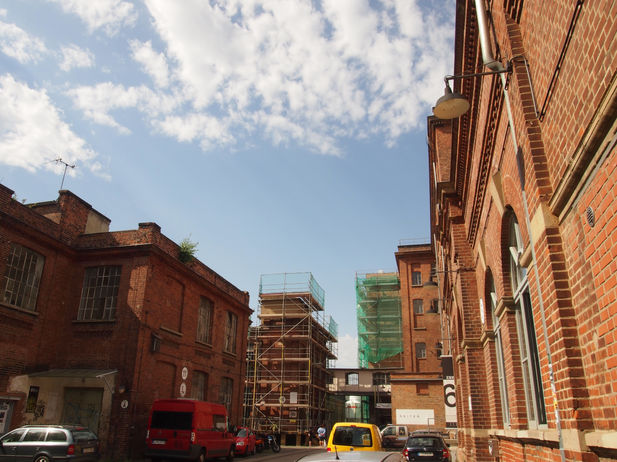
Baumwollspinnerei
Company: Colored Fields GmbH
Phone:
0341 4980222
Email:
Address:
Spinnereistraße 7, 04179
Leipzig
Germany
WEBSITE
About Spinnerei
The Spinnerei cotton mill (Baumwollspinnerei) is located in Germany, in an industrial neighbourhood of Leipzig. Since the beginning of its transformation, the cotton mill has been used for artistic and cultural activities. In fact, different events, open-air cinema, workshops and exhibitions are organised today.
It's a vivid urban space of the city, where students, workers, professors, artists and tourists live together in this heterogeneous place. It hosts several companies, business incubators and non-profit bodies, which contribute to creating an international, challenging and innovative place.
Publications: Scaffidi F. (2024) "Average social and territorial innovation impacts of industrial heritage regeneration", Cities, 148, pp. 1-23. https://doi.org/10.1016/j.cities.2024.104907
Scaffidi F (2021) Social Innovation in Productive Assets Redevelopment: Insights from the Urban Development Scene. Springer Nature Switzerland, Systems and Technologies, vol. 178, pp. 1003-1011.
ISBN 978-3-030-48278-7
Scaffidi F. (2019) “Il ri-ciclo socialmente innovativo del cotonifcio Spinnerei di Lipsia come un’opportunità per defnire nuovi scenari di sviluppo urbano”, inFolio, pp. 58-62. ISSN 1828-2482
Scaffidi F. (2019) “Soft power in recycling spaces: Exploring spatial impacts of regeneration and youth entrepreneurship in Southern Italy”, Local Economy, vol. 34(7), pp. 632–656. https://doi.org/10.1177/026909421989164
Scaffidi F (2019) Il riciclo socialmente innovativo come attivatore di sviluppo urbano e regionale. I brownfield come contesto di analisi e azione. PhD Thesis. Palermo: University of Palermo.
Socially innovative recycling process
1884 - 1907
1993 - 1994
2001 - Today
The cotton mill was built between 1884 and 1907. Its production was very prosperous, in fact it was the largest cotton mill in continental Europe over the next quarter century. The factory provided workers' housing, kindergartens and recreational areas to facilitate workers (Scaffidi, 2019; 2021).
The production activity was stopped and a progressive process of abandon- ment negatively impacted the place. Thanks to the administration’s decision to facilitate the rents at reduced prices, many artists and craftsmen settled in the cotton mill spaces giving it a second chance and creating a new direction in its development (Scaffidi, 2019; 2021).
The company “Leipziger Baumwollspinnerei Verwaltungsgesellschaft mbH” acquired the entire property and transformed the heritage in a space for arts, culture and creative industries. Thanks to Colored Fields GmbH the regeneration of the site is integrated to the urban context (Scaffidi, 2019; 2021).





